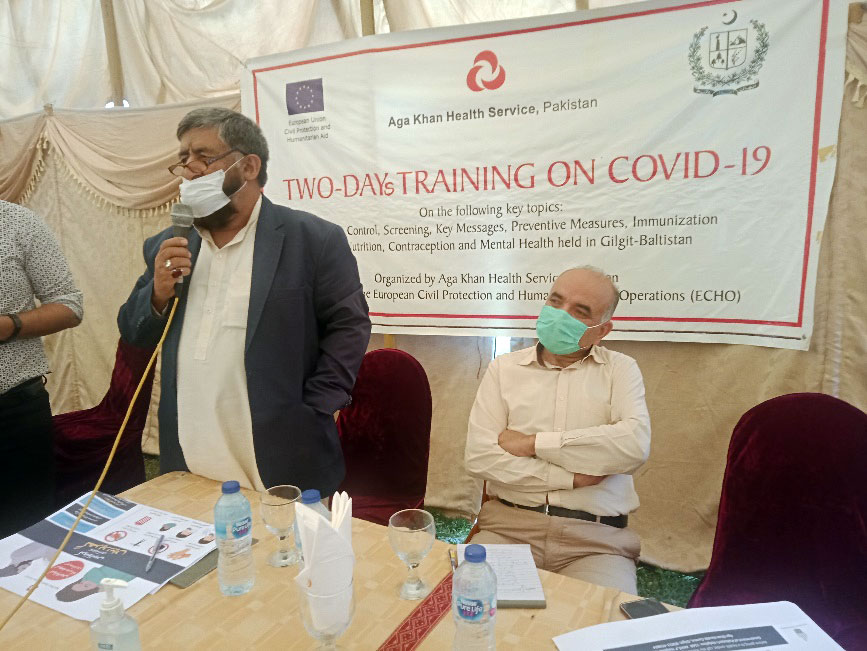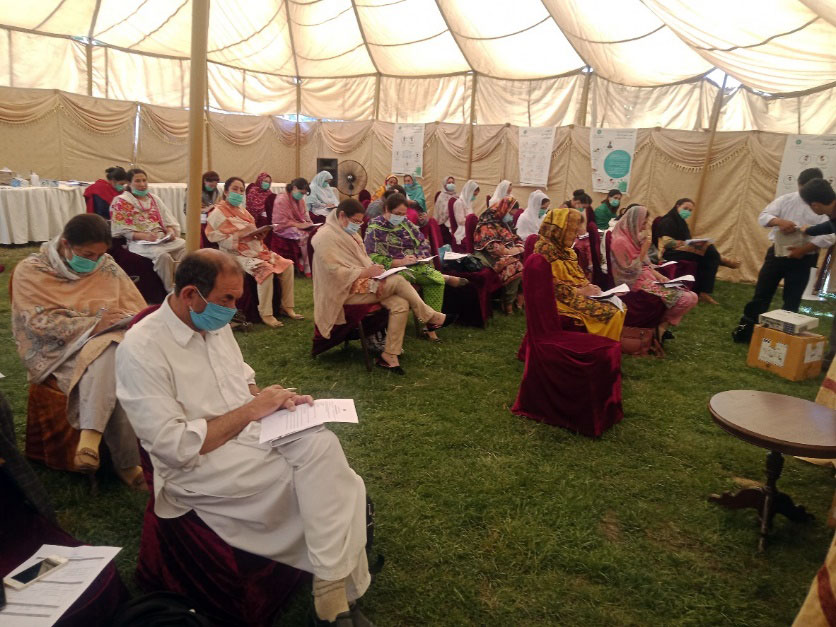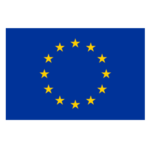With the world in the grip of the second wave of Coronavirus, six AKDN agencies have come together to support Pakistan’s health system to manage the spread of the disease, with a focus on training and awareness-raising.
The work forms part of an emergency 17-month programme being implemented in Pakistan aimed at responding to Coronavirus in Gilgit-Baltistan and Chitral. The programme aims to reach nearly 1.5 million people with critical information about prevention and mitigation, while strengthening the healthcare system and community response. It is supported by the EU’s Civil Protection and Humanitarian Operations Unit (ECHO).

The Aga Khan Heath Services, the Aga Khan University Hospital and the Aga Khan University School of Nursing and Midwifery (AKHS, AKUH and AKU-SONAM respectively) have organised a series of training sessions for staff, government partners and other AKDN agencies, on infection prevention and control, clinical management, community awareness, sample collection and laboratory testing. Additionally, AKHS has set up five COVID-19 response centres and two free-of-charge testing centres to bolster the government’s disease control efforts.
All the agencies involved have so far conducted several awareness–raising campaigns, in an effort to educate broad audiences on ways to live with COVID-19, managing the many every day and psychological challenges.
The Aga Khan Agency for Habitat (AKAH) is working to distribute hygiene kits and protective equipment to remote communities, and on improving current sanitation infrastructure. It has also supported children to return to school by installing handwashing stations like outside of school buildings and other critical locations.

As the network’s local level representative, the Aga Khan Rural Support Programme (AKRSP) is strategically positioned to disseminate messages into communities, and particularly ones that help guide behaviour changes around hygiene practices. Up-to-date clinical information and prevention strategies received from AKDN’s health agencies – in line with the Ministry of Health and World Health Organisation guidance – are being disseminated to local populations by AKRSP. AKRSP has also conducted training sessions with Local Support Organisations (LSOs) across communities in Gilgit-Baltistan and Chitral so that the LSO members can pass on this learning to their networks.
To date, 355 patients have benefitted from the free testing centres; 84 training workshops have been conducted; and in 20 government health facilities and all AKSH, P facilities, healthcare workers treating COVID-19 patients have received PPE. Given that much of the work focuses on behaviour change, the impact is anticipated to be much longer lasting than the life of the programme. This ongoing work has been key to supporting the Government of Pakistan’s attempts to tackle the virus and forms part of AKDN’s global COVID-19 response framework.
The ‘Critical Preparedness and Response Actions for Coronavirus disease (COVID-19) Pandemic in Gilgit-Baltistan and Chitral’ is an emergency 17-month programme being implemented in Pakistan by a coalition of AKDN agencies, with a focus on health-system strengthening and awareness-raising. These are: the Aga Khan Foundation (UK and Pakistan offices) which is providing programme oversight and monitoring; the Aga Khan Agency for Habitat (AKAH); the Aga Khan Health Services (AKHS); the Aga Khan University Hospital (AKUH) and School of Nursing and Midwifery (AKU-SONAM); and the Aga Khan Rural Support Programme (AKRSP). It is funded by the EU’s Civil Protection and Humanitarian Operations Unit (ECHO).

Funded by European Union Civil Protection and Humanitarian Aid




